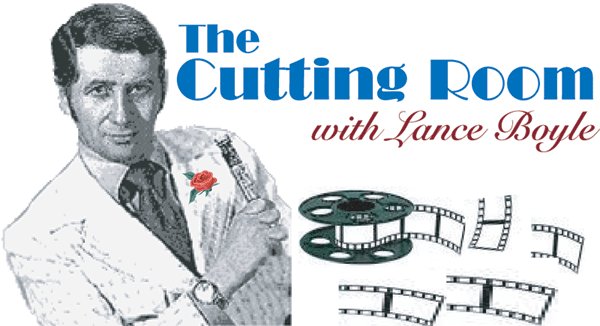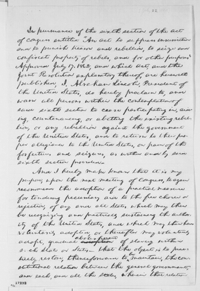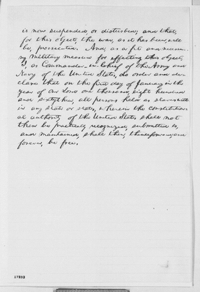

MIRIAM KALE: “Lance, you’re too kind, but please go on.”
BOYLE: “Let’s begin with your impression of this year’s crop of Best Picture nominees.”
KALE: “It’s the poorest harvest I can remember. It’s so bad that the Academy could only manage to nominate nine movies. You’d think someone could have found one more to round out the field. After all, that’s why the list was padded from five to 10.”
BOYLE: “Maybe the Academy is becoming more discerning.” (short pause and then they both break out laughing).
 |
BOYLE: “But, Hollywood has never had much interest in telling history honestly, and it has a long history of using gross inhumanity to manipulate audiences. Take Birth of a Nation and Exodus, for example, so why make such a fuss over these?”
KALE: “Hollywood today not only continues to mythologize pro-Western violence, but it now revels in the grotesquerie of torture, presenting morally sanitized graphic cruelty to a mass public so that it will accept it as normal. The nearest literary comparison of such moral coarsening is the daily ‘Two Minutes Hate’ in George Orwell’s 1984, which was supposed to condition people to love Big Brother and hate a specific person.”
BOYLE: “Well, I’m afraid to ask what you’d pick for Best Picture.”
KALE: “Personally, I’d like to see The Life of Pi win. The survival story of a man adrift in a 26-foot lifeboat with a tiger is the most original entry and it is beautifully filmed, even in 2D. If I were to make book, though, I’d have to go with Lincoln.
BOYLE: “Why Lincoln?”
KALE: “All the cosmic signs point to it. First, it is a hagiography of a virtually deified American president. Second, Spielberg hasn’t won a Best Picture or Best Director Oscar since Saving Private Ryan in 1998 so he’s due. Third, the 13th Amendment, Lincoln’s cause célèbre to abolish slavery, is a sure crowd-pleaser. Fourth, this year marks the 150th anniversary of Lincoln’s official 1863 Emancipation Proclamation. How could the Academy not give the award to Lincoln!”
BOYLE: “I get the sense you think the movie will win despite itself.”
KALE: “The film is beautifully shot, and Daniel Day-Lewis is a mesmerizing Lincoln. It’ll win for its acting and scenery, but mainly because of its propaganda value. It reinforces two great founding American myths—Lincoln freed the slaves, and slavery was the key issue of the Civil War.”
BOYLE: “But slavery was central to the Civil War, and the 13th Amendment did abolish it, so these myths really seem to be facts.”
KALE: “Even a myth can have some basis in historical fact, but these two are polished to such a high buff that the economic causes of the war and Lincoln’s pre-occupation with national unity are virtually absent. Spielberg disingenuously presents slavery as a merely moral issue, and portrays Lincoln less as a president than as a crusading political pope. In fact, the film is so preachy that it feels like a 2.5-hour sermon, and moviegoers could be forgiven for thinking they were in a church.”
BOYLE: “Just a moment ago you mentioned Lincoln’s ‘official’ Emancipation Proclamation. What did you mean by that? Was there an ‘unofficial’ one?”
|
The First Emancipation Proclamation,
July 22, 1862 |
|||
 |
 |
||
|
For enlargement and transcription click here. |
|||
‘As a fit and necessary military measure for effecting this object, I, as Commander-in-Chief of the Army and Navy of the United States, do order and declare that on [January 1, 1863], all persons held as slaves within any state or states wherein the constitutional authority of the United States shall not then be practically recognized, submitted to and maintained, shall then, thenceforward, and forever, be free.’
“Beyond this cause-and-effect attitude, even the final version was nothing but empty bluster, since a proclamation is not a law, and Lincoln had no physical or legal means to enforce it. Spielberg does touch on this a bit when he has Lincoln admit the Proclamation’s unconstitutionality, but he does so only on moral grounds.” BOYLE: “Okay, Lincoln was a political realist, but that doesn’t show he wasn’t morally opposed to slavery. Both motives might well have had equal weight in his mind.” KALE: “Might have, but didn’t. What Spielberg conspicuously omits is any mention of Lincoln’s own anti-Black prejudice!” BOYLE: “Lincoln—a racist?! That stands history on its head!” KALE: “History is already on its head; we’ve just adapted our perception. If you don’t believe that Lincoln was just as bigoted as the southerners, what do you make of this excerpt from an 1858 speech he gave in Charleston, South Carolina: ‘I am not, nor ever have been, in favor of bringing about in any way the social and political equality of the white and black races, that I am not nor ever have been in favor of making voters or jurors of negroes, nor of qualifying them to hold office, nor to intermarry with white people; and I will say in addition to this that there is a physical difference between the white and black races which I believe will forever forbid the two races living together on terms of social and political equality. And inasmuch as they cannot so live, while they do remain together there must be the position of superior and inferior, and I as much as any other man am in favor of having the superior position assigned to the white race.’ ” BOYLE: (momentarily dumbstruck) “I-I don’t know what to say. These are the very arguments put forth by the pro-slavery congressmen in the movie and the very attitudes ‘Lincoln’ and his allies passionately denounced!” KALE: “If you had been in Chicago two months earlier, you’d have heard Lincoln say almost the opposite: ‘I have always hated slavery, I think as much as any Abolitionist. I have been an Old Line Whig. I have always hated it, but I have always been quiet about it until this new era of the introduction of the Nebraska Bill began. I always believed that everybody was against it, and that it was in course of ultimate extinction.’ “His own hatred of slavery notwithstanding, he was opposed to getting involved with slavery where it already existed because he was pre-occupied with national unity. You see, Lance, slavery was to Lincoln no more than a means to an end. It is Hollywood and historical distortionists like Spielberg who are responsible for denying this fact and making real history seem absurd. Fraud and falsification notwithstanding, Lincoln will still win because it pushes the Lincoln-as-saviour myth.” BOYLE: “If the theme of anti-slavery is the main reason you think Lincoln will win, why won’t Tarantino’s Django Unchained? At least it isn’t bound by history.” KALE: “Tarantino is a schlockmeister. Lincoln tells a story, albeit falsified, but Django Unchained gives us a revenge/torture fantasy like Kill Bill or Inglorious Basterds. It lacks class or sophistication and is a glorification of violence.” BOYLE: “You make a strong case for Lincoln, but Argo is garnering a lot of awards in advance of the Oscars. What do you think its chances are? KALE: “Slim to none, I hope. Such Pentagon-funded jingoism is designed for one purpose and one purpose only: to prime audiences to accept the need for the U.S. to attack Iran. That is exactly what Ben Affleck, a former leftist—if that term still has any meaning—has done, whether he intended to or not. “With no sense of irony or shame, Affleck portrays Iran as a country run by theocrats whose people are stereotypically violent and intolerant, and therefore deserving of whatever fate the U.S. visits upon them. This grossly prejudiced characterization makes no mention of the roles played by violent, intolerant Jews of “The Jewish State” or the violent, intolerant Christians of the U.S., which is no less a theocracy. “For what it’s worth, the film is based on a CIA agent’s memoir during the 1979 Iranian revolution, and centres on the need to spirit six Americans out of the country. But the plot of Argo is less significant than its timing. For years, anti-Muslim warmongers in Israel and the U.S. have tried without success to coerce Barack Obama into waging all out war, even though Iran poses no threat to the U.S. or Israel, and has broken no laws. Now the warmongers are deliberately manipulating audiences in hopes of forcing Obama’s hand. Clearly, Hollywood is the willing handmaiden of anti-Muslim aggression.”